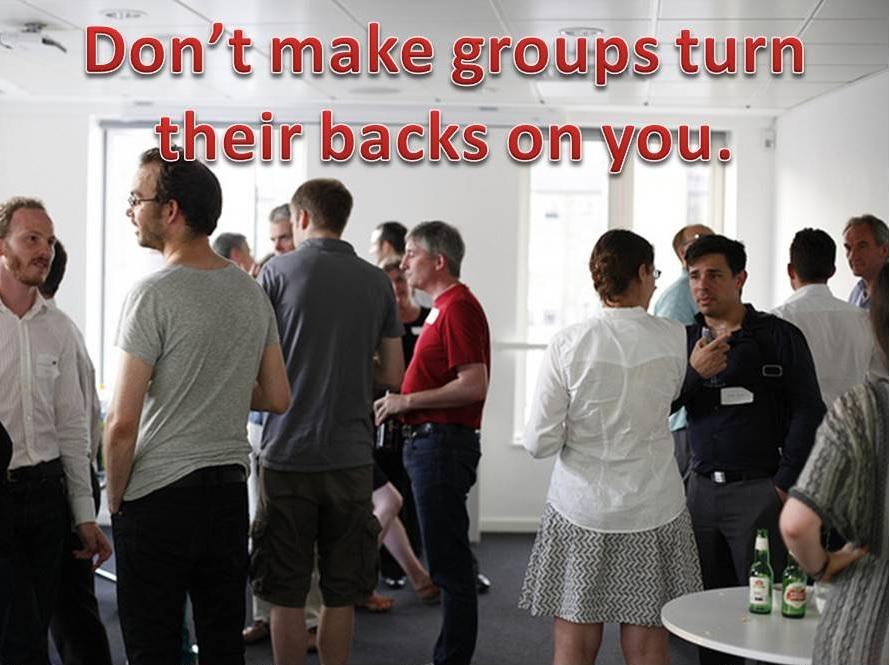Social Network Groups like People
Trade Marketing is tough as a business
It’s a difficult thing to communicate as a business in a world that is primarily interested in individuals. When you engage as a business – you’re telling people that you’re there to sell them. Here are 5 guidelines to help you engage groups as a business.

- If you solicit business non-stop, you will be blacklisted. Events are social, so be… social. People you meet aren’t always the ones that buy from you. They are, many times, your brand translator and initially present you to your next lead. Your name will come to the top of their mind as they encounter someone looking for what you offer. If you’re an annoying salesman who is always pitching and never listening—even when they think you may be potential fit, you’re not worth the risk of making them look bad by mentioning your name as a referral.
- When you’re the listener, follow other’s story as if you lived it. As you learn to pay attention to those listening to you and speak at the same time, it becomes easy to recognize when the person you’re ’speaking’ with has checked out. Don’t check out. If you’re giving your time to use social encounters for business, be present and engaged—here and now.
- Have one niche, in which you are the expert. If your response to, ”What do you do?” is, “Well, I do this and that for money, but this other thing is really what I love to do,” you may as well have said that you’re a philosopher and a CPA during an interview to be an astronaut. You may be all of those, but you’re not going to get a job at NASA speaking on behalf of “Houston” because of your philosophy degree and CPA clientele. If your pitch is that you do multiple jobs, it means you aren’t good enough to specialize in any of them. It doesn’t matter how many sources of income you have—only what specialty you pitch. Be the niche expert in one specific segment that you can confidently engage. Give people a reason to feel good that they know you.
- Always be ready to give your contact info. In an online event, your email signature or website contact page is sufficient. Share your contact information through social media, email, and text, because it only takes a minute to get set up and is automatically added to every communication that follows. For all planned and impromptu in person connections, always have a business card. Business cards are quickly becoming the only remaining stationary for business—so use it to communicate your brand. Business people have business cards—don’t make your job appear to be a hobby.
- Finally, have a hook. This is something that will help people remember you, and is best when it references your expertise. You don’t have to be a clown to be memorable. Have some thing (unique apparel, insightful phrase, cool collateral, etc.) that will cement you into their memory—in a good way.
